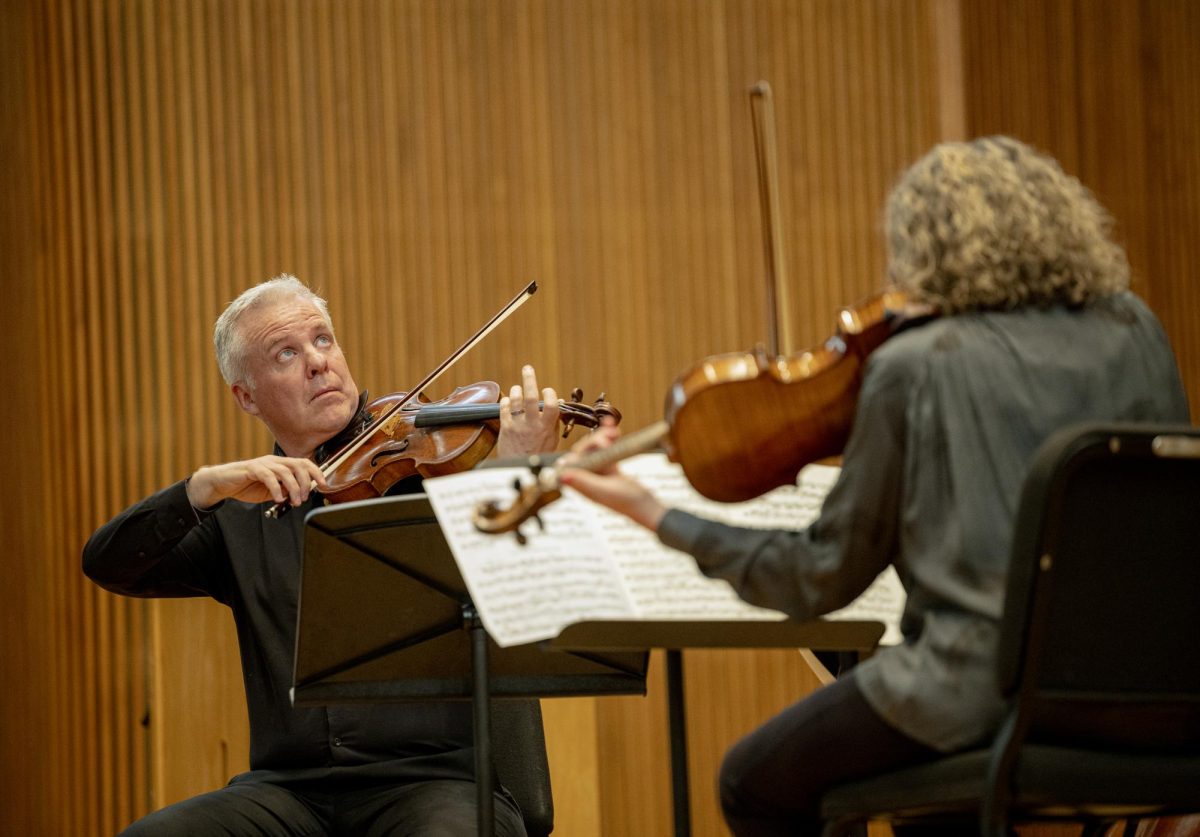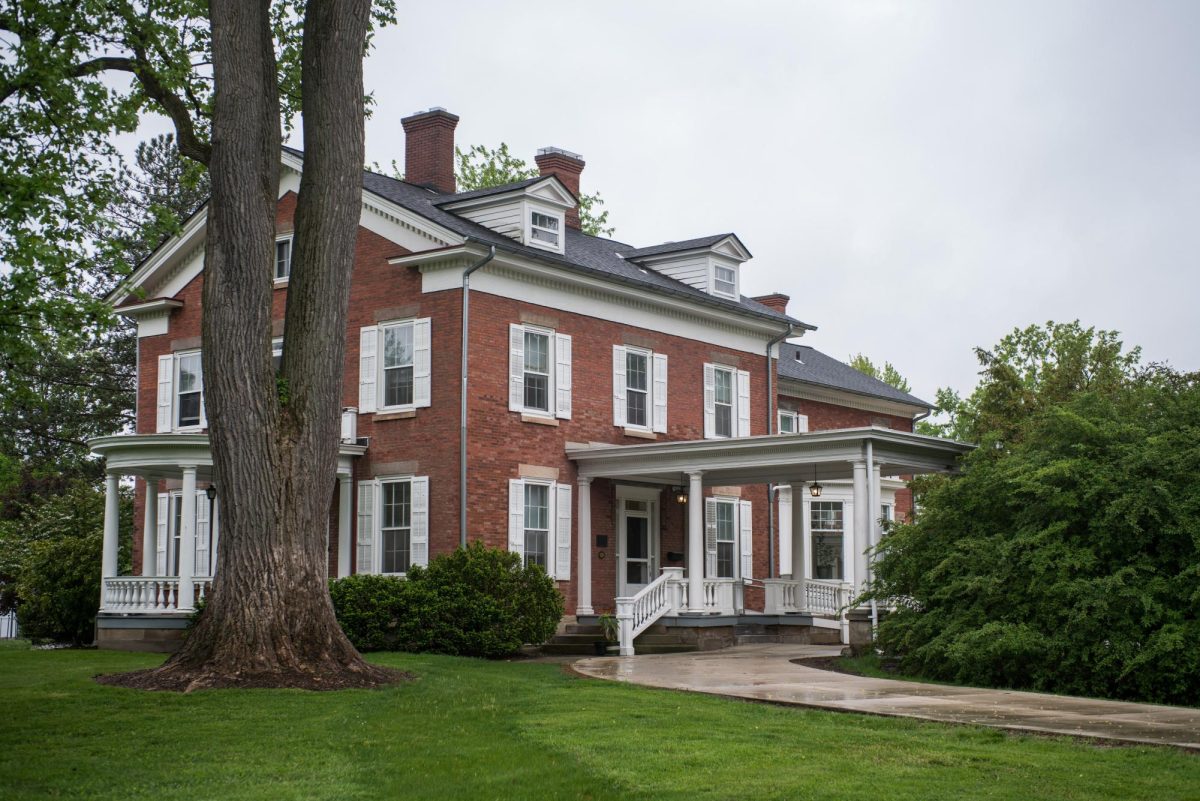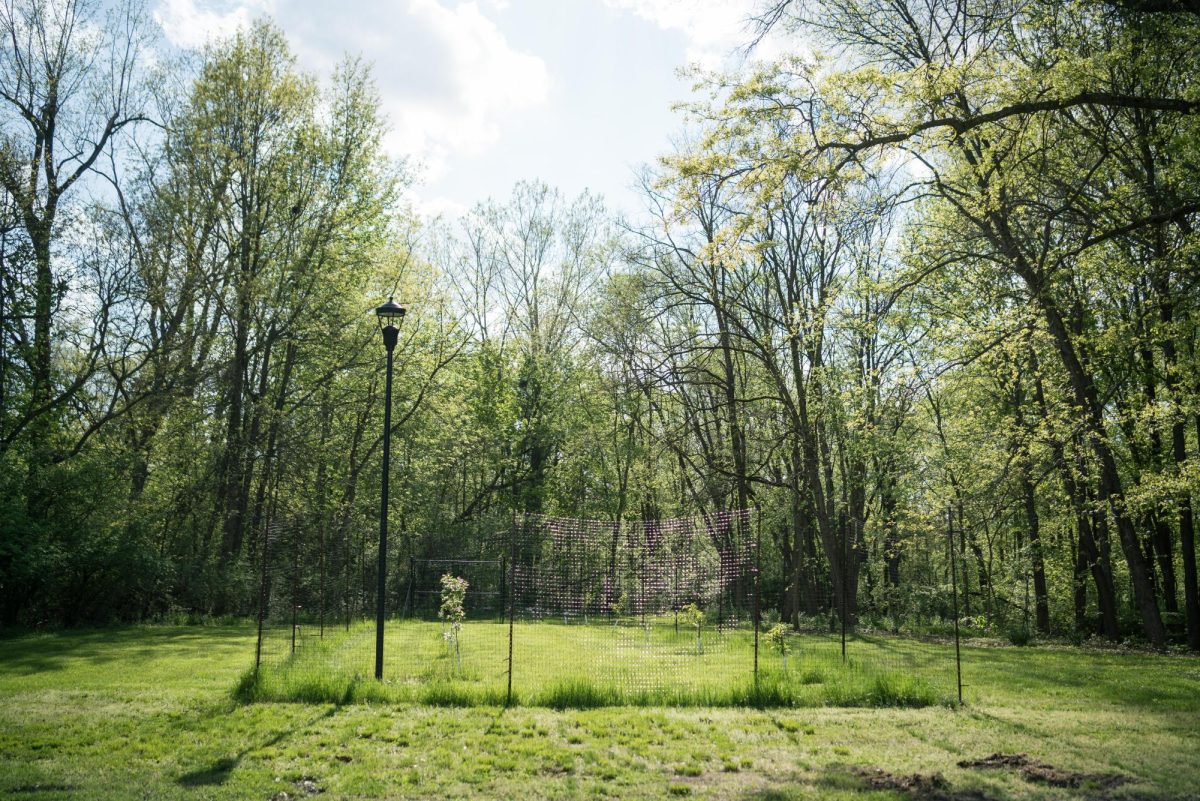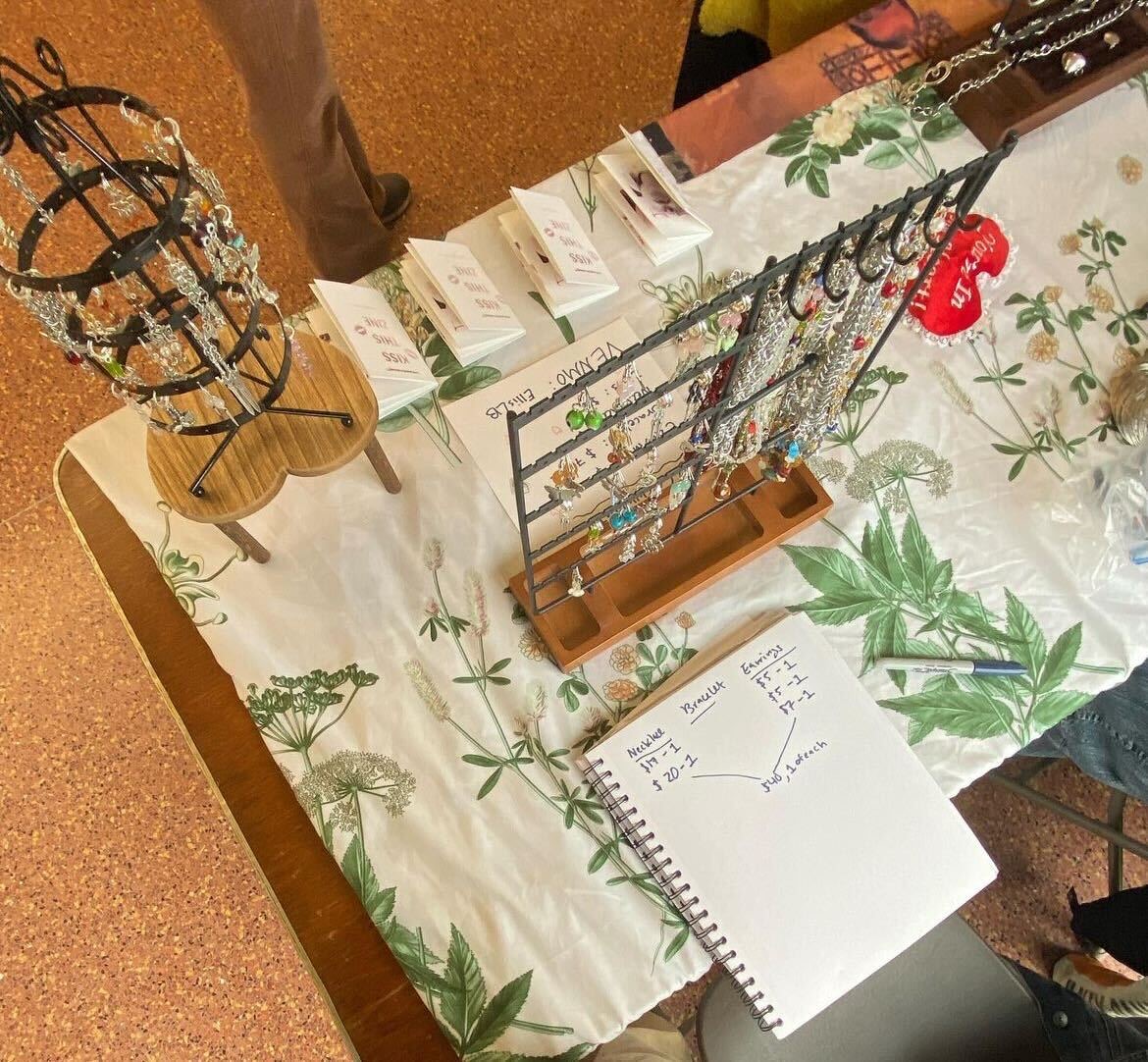Last Sunday, Oberlin College hosted a Holocaust Remembrance Day program. Yom HaShoah spans May 5–6 and commemorates the lives of the six million Jews who were murdered by Nazis during World War II. Yom HaShoah is observed annually at Oberlin through a series of educational programs, talks, and musical performances. This year, Carol Wilner, who was born in Poland a day before the German invasion in 1941, shared her story in Warner Concert Hall. Wilner was joined by her granddaughter, Emily Mandell, OC ’23, who performed a piece composed by Dave Ragland titled “I Believe.” The program also featured an instrument from the Violins of Hope, a collection of stringed instruments connected with the Holocaust, with three more on display outside. This event emphasized the ability and importance of music to heal intergenerational trauma. Speakers did not shy away from awful details, emphasizing the theme that nobody should experience those horrors again. Taking into account the ongoing humanitarian crisis in Palestine, this message is extremely applicable to our modern age.
“Never again means never again for anybody,” Mandell said in a conversation with the Review. “And especially with what’s happening in Gaza, I think that sentiment is very relevant today.”
The lyrics of the song Mandell performed come from messages scrawled on the walls of a concentration camp. Last year, Mandell graduated from Oberlin Conservatory with a degree in Vocal Performance. She heard the piece for the first time during her first year, when Associate Professor of Voice Katherine Jolly performed it in a concert. Mandell was deeply moved by the composition and decided to place it at the end of her senior recital as a tribute to her grandmother. Before she sang on Sunday, Mandell’s grandmother shared her Holocaust survival story.
“It was a pretty incredible, once-in-a-lifetime experience because this is really the first time my grandmother has spoken in great detail about her story,” Mandell said. “It’s always been a little nerve-wracking for her to tell, so I knew bits and pieces of it, but this is the first time me and my parents heard a lot of the details.”
One harrowing account Carol Wilner kept hidden involved a dog. Wilner, now 83, described how her parents were forced to work at a labor camp. At 18 months old, Wilner was smuggled into the camp and hidden in a small attic space above the barracks. She lived there for three years. Her memories of the camp are few, but she remembers one day when her mother stayed home sick, unable to participate in forced manual labor. While they were playing, two German officers entered the room with a German Shepherd. Wilner’s mother, without time to return her baby to the attic, whisked Wilner under the bed. But the dog sniffed her out and Wilner screamed. The two Gestapo officers yanked her out, but upon seeing Wilner’s face, turned and walked out the door, leaving the mother and daughter to wonder how they had survived. After the Soviets liberated her city, the family moved to a displaced persons camp in Ulm, Germany, before eventually making their way to the U.S. However, Wilner said her reception matched the treatment of refugees today, as she was greeted by suspicion and hostility rather than open arms. Nevertheless, she persevered, and given the current state of the world, Wilner felt compelled to join her granddaughter on the stage and share her story
In addition to Wilner’s personal narrative, Oberlin hosted four instruments from the Violins of Hope. This collection, based out of Tel Aviv, is composed of instruments owned and played by Jews during the Holocaust and donated by survivors and relatives. On Sunday, Professor of Violin Sibbi Bernhardsson played the Ole Dahl violin. Dahl’s son spoke about his father’s life. Ole Dahl worked as a luthier in Copenhagen, Denmark, until Germany invaded his country in 1940. He joined the Danish resistance, and aided in sabotaging German military actions while smuggling Danish Jews across the border. After the war, Dahl opened a violin shop in Bloomington, IN, which he ran until his retirement in 1999. Dahl’s son remembers his father playing the violin every Wednesday as part of a quartet of friends and thanked Bernhardsson for bringing the soundtrack of his childhood back to life.
President of Agudath B’Nai Israel Synagogue in Lorain County Arnie Milner remembered the late Emil Schoenbrun, who taught a Hebrew after-school program in Lorain. Milner only learned after Schoenbrun’s death of how he survived the Holocaust. Schoenbrun, his wife, and two young children were taken to Auschwitz, the deadliest concentration camp in occupied Poland. Schoenbrun, a classically trained violinist, was the only one to survive. The Nazis forced him to play his violin outside of the camp to calm arriving prisoners. After World War II, Schoenbrun never played his violin again.
“This is how you beat what happened during the Holocaust that he so painfully had to live through,” Milner said. “So tonight, I hope Mr. Schoenbrun is looking down on us because for the first time in America, he plays for us through the Violins of Hope.”
Mandell commented on the power of music to immortalize the memories of survivors.
“I think this is one of those things that can change the world — by educating people through music,” Mandell said. “We have the Violins of Hope and we have singing. I think the Oberlin Conservatory is a place that uses music to change the world.”






